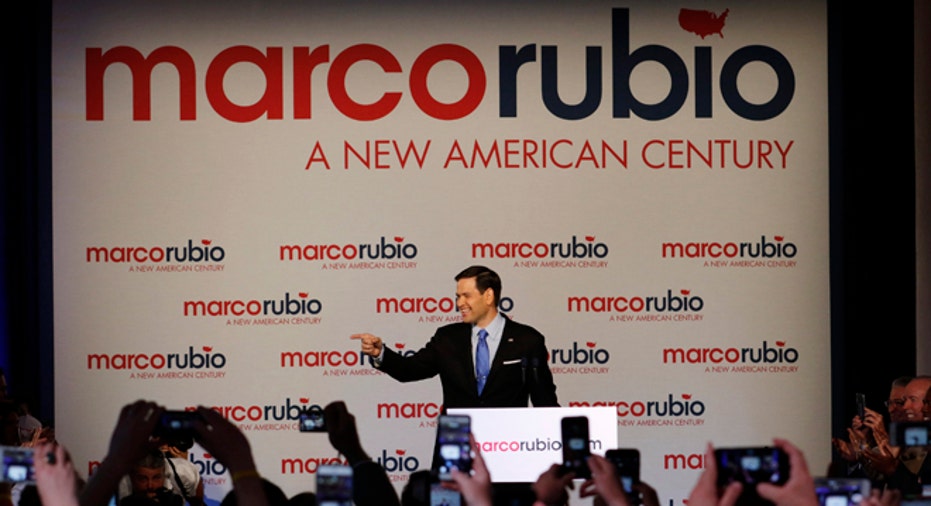Economy, Jobs and the American Dream Cornerstones of Rubio's Campaign For President

Sen. Marco Rubio (R-Fla.) formally announced his campaign for president Monday night at Miami's Freedom Tower.
In kicking off his speech he touted the 'American Dream' questioning whether "Americans are starting to doubt whether achieving that dream is still possible."
The GOP field, which is expected to get crowded, already includes Texas Sen. Ted Cruz and Tennessee Sen. Rand Paul. Former Florida Gov. Jeb Bush and Wisconsin Gov. Scott Walker are also expected to enter the race at any time, as is New Jersey Gov. Chris Christie, an early front-runner whose star has fallen considerably in recent months.
Former First Lady and Secretary of State Hillary Clinton announced on Sunday that she will run for the Democratic nomination and will begin campaigning in Iowa on Tuesday. One of her top campaign efforts focuses on supporting small businesses which Rubio emphasized as well.
Rubio's announcement comes after weeks of disappointing U.S. economic data that's led many on Wall Street and Main Street to wonder if enough action has been taken to continue the recovery from the Great Recession. Rubio, aiming to capitalize on those concerns, said "hard working families are living paycheck to paycheck."
Those concerns were first raised in an interview with FOXBusiness.com in March, when the Senator said the U.S. could do more to foster the economy and its workers.
"The thing I keep hearing from people is that we [the United States] are becoming increasingly uncompetitive,” he said. "You want it to be a place that is as attractive, if not more so, than any other place on the planet to invest and innovate.”
Rubio is just 43-years-old and he is likely to face criticism that he isn’t experienced enough to hold the highest elected office in the land.
An articulate and charismatic candidate, Rubio is a first generation American and the son of working-class parents. As such he has an intriguing story to tell the growing number of Hispanic Americans whose votes are increasingly coveted by both parties.
His supporters believe his youth and immigrant background could help him pull young voters away from the Democratic Party, which traditionally appeals to younger voters as well as minorities.
If elected, Rubio would be the first Hispanic president.
As a candidate, he has positioned himself as sharply conservative on fiscal issues and a strong supporter of limited government, but not as extreme in his views as his Senate colleague Cruz.
A bit of a prodigy, Rubio was elected to the Florida state house while still in his 20s, and rose to his U.S. Senate seat at the ripe old age of 38. He has made no secret of his White House aspirations, traveling to Iowa just two weeks after the 2012 presidential election to rub elbows with Iowa GOP officials, according to the AP.



















